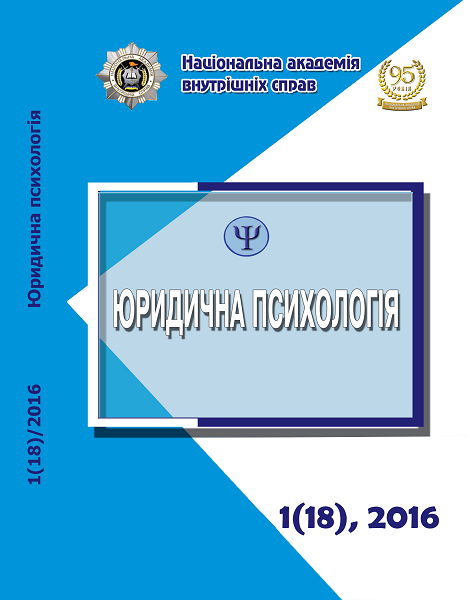Features of the Political-Legal Activity of Youth Under Conditions of the Transformation of Ukrainian Society
Keywords:
political-legal activity, social representation, citizen, transformation, revolution
Abstract
The article analyzes the releant political-legal situation in a country, was defined the specificity of this situation, raised questions about the evolutionary and revolutionary ways of social development. On the basis of focus group research were analyzed representations of young people about the situation, about the country and about the power and its impact on youth representation on the possible form their own political-legal activity. Is ascertained the presence of preparedness of young people to realize the revolutionary scenario of solving social contradictions. The author stated, that in an environment of students of the humanitarian profile common indication of passivity, detachment from socio-political reality, the reluctance to avoid taking any decisions; delegating the solution of urgent social problems to volunteers or more active members of society. Along with this, there are ideas about the possibility of using revolutionary scenario of resolving the situation of «uncertainty» and «chaos», and its political and legal activities will depend on the level of economic well-being at the time of implementation of such a scenario. At the same time, the declared potential for development in the existing situation is associated with a change in the rules of life, lack of levers of action of norms of the law one for all. This forms the setting for the ability to «play by the rules». Moreover, such willingness to break the established rules of law consistent with notions of a corrupt government, irresponsibility and impunity for the violation of the law. At the same time, the declared potential for development in the existing situation is associated with a change in the rules of life, lack of levers of action of norms of the law one for all. This forms the setting for the ability to «play by the rules». Moreover, such willingness to break the established rules of law consistent with notions of a corrupt government, irresponsibility and impunity for the violation of the law.Downloads
Download data is not yet available.
Abstract views: 132 PDF Downloads: 86
Issue
Section
Theoretical and methodological issues of legal psychology
- Authors reserve the right to authorship of their own work and transfer to the magazine the right of the first publication of this work under the terms of the Creative Commons Attribution License, which allows other persons to freely distribute published work with mandatory reference to authors of the original work and the first publication of an article in this magazine.
- Authors have the right to enter into separate additional agreements on non-exclusive dissemination of the work in the form in which it was published in the journal (for example, to post an article in the institution's repository or to publish as part of a monograph), provided that the link to the first publication of the work in this journal is maintained.
- The journal's policy allows and encourages the posting of articles by authors on the Internet (for example, in electronic storehouses of institutions or on personal websites), both before the submission of this manuscript to the editorial office and during its editorial processing, as this contributes to the creation of a productive scientific discussion and positively affects the efficiency and dynamics of citing the published work.




